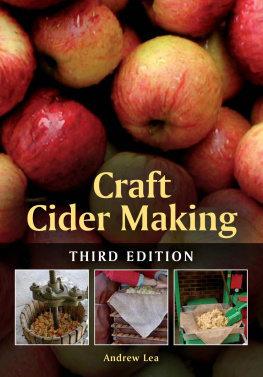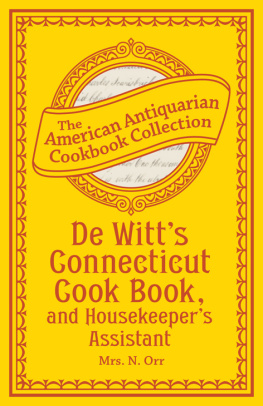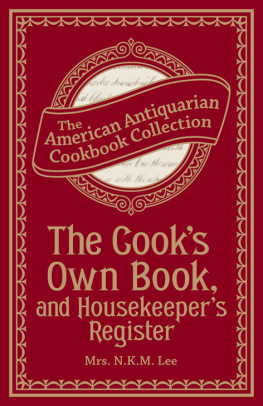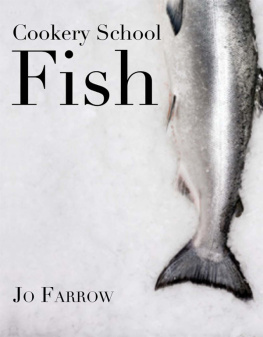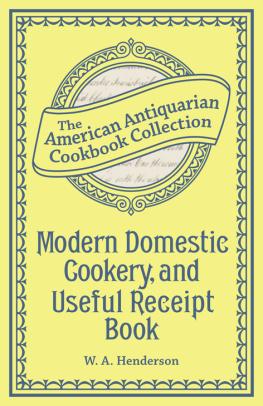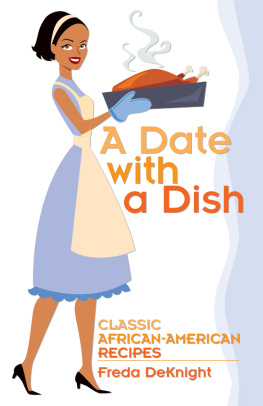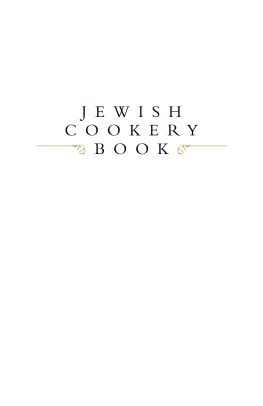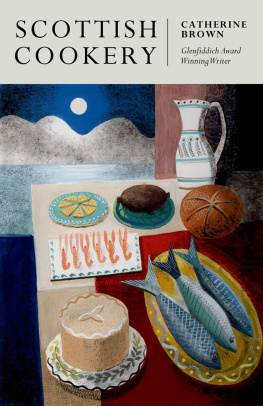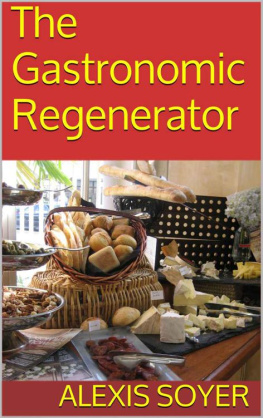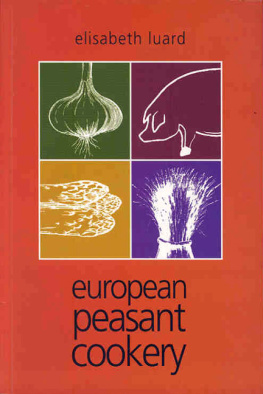Lea - Domestic Cookery, Useful Receipts, and Hints to Young Housekeepers
Here you can read online Lea - Domestic Cookery, Useful Receipts, and Hints to Young Housekeepers full text of the book (entire story) in english for free. Download pdf and epub, get meaning, cover and reviews about this ebook. year: 2012, publisher: Andrews UK, genre: Home and family. Description of the work, (preface) as well as reviews are available. Best literature library LitArk.com created for fans of good reading and offers a wide selection of genres:
Romance novel
Science fiction
Adventure
Detective
Science
History
Home and family
Prose
Art
Politics
Computer
Non-fiction
Religion
Business
Children
Humor
Choose a favorite category and find really read worthwhile books. Enjoy immersion in the world of imagination, feel the emotions of the characters or learn something new for yourself, make an fascinating discovery.

- Book:Domestic Cookery, Useful Receipts, and Hints to Young Housekeepers
- Author:
- Publisher:Andrews UK
- Genre:
- Year:2012
- Rating:5 / 5
- Favourites:Add to favourites
- Your mark:
- 100
- 1
- 2
- 3
- 4
- 5
Domestic Cookery, Useful Receipts, and Hints to Young Housekeepers: summary, description and annotation
We offer to read an annotation, description, summary or preface (depends on what the author of the book "Domestic Cookery, Useful Receipts, and Hints to Young Housekeepers" wrote himself). If you haven't found the necessary information about the book — write in the comments, we will try to find it.
Hundreds of useful recipes: soups, meats, fish, cakes and many more, all written with economy and self-sufficiency in mind.
Lea: author's other books
Who wrote Domestic Cookery, Useful Receipts, and Hints to Young Housekeepers? Find out the surname, the name of the author of the book and a list of all author's works by series.
Domestic Cookery, Useful Receipts, and Hints to Young Housekeepers — read online for free the complete book (whole text) full work
Below is the text of the book, divided by pages. System saving the place of the last page read, allows you to conveniently read the book "Domestic Cookery, Useful Receipts, and Hints to Young Housekeepers" online for free, without having to search again every time where you left off. Put a bookmark, and you can go to the page where you finished reading at any time.
Font size:
Interval:
Bookmark:
DOMESTIC COOKERY
USEFUL RECEIPTS, AND HINTS TO YOUNG HOUSEKEEPERS
BY ELIZABETH E. LEA
"The Source of Liberal Deeds is Wise Economy."
This edited version, including layout, typography, additions to text, cover artwork and other unique factors is copyright 2012 Andrews UK Limited
This book is sold subject to the condition that it shall not, by way of trade or otherwise, be lent, resold, hired out or otherwise circulated without the publishers prior written consent in any form of binding or cover other than that in which it is published, and without a similar condition being imposed on the subsequent purchaser.
INTRODUCTORY ADDRESS.
The compiler of "Useful Receipts and Hints to Young Housekeepers" having entered early in life upon a train of duties, was frequently embarrassed by her ignorance of domestic affairs. For, whilst receipt books for elegant preparations were often seen, those connected with the ordinary, but far more useful part of household duties, were not easily procured; thus situated, she applied to persons of experience, and embodied the information collected in a book, to which, since years have matured her judgment, she has added much that is the result of her own experiments.
Familiar, then, with the difficulties a young housekeeper encounters, when she finds herself in reality the mistress of an establishment, the Authoress offers to her young countrywomen this Work, with the belief that, by attention to its contents, many of the cares attendant on a country or city life, may be materially lessened; and hoping that the directions are such as to be understood by the most inexperienced, it is respectfully dedicated to those who feel an interest in domestic affairs.
MEATS AND POULTRY.
To Boil Fresh Meat.
In boiling fresh meat, care is necessary to have the water boiling all the time it is in the pot; if the pot is not well scummed, the appearance of the meat will be spoiled.
Mutton and beef are preferred, by some, a little rare; but pork and veal should always be well done. A round of beef that is stuffed, will take more than three hours to boil, and if not stuffed, two hours or more, according to the size; slow boiling is the best. A leg of mutton requires from two to three hours boiling, according to the size; a fore-quarter from an hour to an hour and a half; a quarter of lamb, unless, very large, will boil in an hour. Veal and pork will take rather longer to boil than mutton.
All boiled fresh meat should have drawn butter poured over it, after it is dished, and be garnished with parsley.
The liquor that fresh meat, or poultry, is boiled in, should be saved, as an addition of vegetables, herbs, and dumplings make a nourishing soup of it.
A large turkey will take three hours to boil--a small one half that time; secure the legs to keep them from bursting out; turkeys should be blanched in warm milk and water; stuff them and rub their breasts with butter, flour a cloth and pin them in. A large chicken that is stuffed should boil an hour, and small ones half that time. The water should always boil before you put in your meat or poultry. When meat is frozen, soak it in cold water for several hours, and allow more time in the cooking.
To Boil a Turkey.
Have the turkey well cleaned and prepared for cooking, let it lay in salt and water a few minutes; fill it with bread and butter, seasoned with pepper, salt, parsley and thyme; secure the legs and wings, pin it up in a towel, have the water boiling, and put it in, put a little salt in the water; when half done, put in a little milk. A small turkey will boil in an hour and a quarter, a middle sized in two hours, and a large one in two and a half or three hours; they should boil moderately all the time; if fowls boil too fast, they break to pieces--half an hour will cook the liver and gizzard, which should be put round the turkey; when it is dished, have drawn butter, with an egg chopped and put in it, and a little parsley; oyster sauce, and celery sauce are good, with boiled turkey or chicken.
To Boil Beef Tongue, Corned Beef &c.
If the tongue is dry, let it soak for several hours, put it to boil in cold water, and keep it boiling slowly for two hours; but if it is just out of the pickle, the water should boil when it goes in.
Corned or pickled beef, or pork, require longer boiling than that which is dry; you can tell when it is done by the bones coming out easily. Pour drawn butter over it when dished.
To Boil a Ham.
A large ham should boil three or four hours very slowly; it should be put in cold water, and be kept covered during the whole process; a small ham will boil in two hours. All bacon requires much the same management,--and if you boil cabbage or greens with it, skim all the grease off the pot before you put them in. Ham or dried beef, if very salt, should be soaked several hours before cooking, and should be boiled in plenty of water.
To Boil Calf's Head.
Cut the upper from the lower jaw, take out the brains and eyes, and clean the head well; let it soak in salt and water an hour or two; then put it in a gallon of boiling water, take off the scum as it rises, and when it is done, take out the bones; dish it, and pour over a sauce, made of butter and flour, stirred into half a pint of the water it was boiled in; put in a chopped egg, a little salt, pepper, and fine parsley, when it is nearly done. You can have soup of the liquor, with dumplings, if you wish.
To Boil Veal.
Have a piece of the fore quarter nicely washed and rubbed with Hour; let it boil fast; a piece of five pounds will boil in an hour and a half; dish it up with drawn butter. Oyster sauce is an improvement to boiled veal.
Roasting Meat.
Roasting either meat or poultry requires more attention than boiling or stewing; it is very important to baste it frequently, and if the meat has been frozen, it should have time to thaw before cooking. Beef, veal, or mutton, that is roasted in a stove or oven requires more flour dredged on it than when cooked before the fire in a tin kitchen. There should be but little water in the dripping pan, as that steams the meat and prevents its browning; it is best to add more as the water evaporates, and where there is plenty of flour on the meat it incorporates with the gravy and it requires no thickening; add a little seasoning before you take up the gravy. Meat that has been hanging up some time should be roasted in preference to boiling, as the fire extracts any taste it may have acquired. To rub fresh meat with salt and pepper will prevent the flies from troubling it, and will make it keep longer.
To Roast a Turkey--to make Gravy, &c.
A very large turkey will take three hours to roast, and is best done before the fire in a tin oven. Wash the turkey very clean, and let it lay in salt and water twenty minutes, but not longer, or it changes the color; rub the inside with salt and pepper; have ready a stuffing of bread and butter, seasoned with salt, pepper, parsley, thyme, an onion, if agreeable, and an egg; if the bread is dry, moisten it with boiling water; mix all well together, and fill the turkey; if you have fresh sausage, put some in the craw; have a pint of water in the bottom of the dripping pan or oven, with some salt and a spoonful of lard, or butter; rub salt, pepper and butter over the breast; baste it often, and turn it so that each part will be next the fire.
Gravy may be made from the drippings in the oven by boiling it in a skillet, with thickening and seasoning. Hash gravy should be made by boiling the giblets and neck in a quart of water, which chop fine, then season and thicken; have both the gravies on the table in separate tureens.
Cranberry and damson sauce are suitable to eat with roast poultry.
To Roast a Goose.
Make a stuffing of bread, butter, salt, pepper, sage, thyme and onions; it requires but little butter, as geese are generally fat; wash it well in salt and water, wipe it, and rub the inside with salt and pepper. A common sized goose will roast in an hour, and a small one in less time; pour off nearly all the fat that drips from the goose, as it will make the gravy too rich. Make hash gravy of the giblets the same as for turkey.
Next pageFont size:
Interval:
Bookmark:
Similar books «Domestic Cookery, Useful Receipts, and Hints to Young Housekeepers»
Look at similar books to Domestic Cookery, Useful Receipts, and Hints to Young Housekeepers. We have selected literature similar in name and meaning in the hope of providing readers with more options to find new, interesting, not yet read works.
Discussion, reviews of the book Domestic Cookery, Useful Receipts, and Hints to Young Housekeepers and just readers' own opinions. Leave your comments, write what you think about the work, its meaning or the main characters. Specify what exactly you liked and what you didn't like, and why you think so.



